China's real estate market is a key global contributor: Conference
Updated: 2015-04-20 06:05
By PAUL WELITZKIN in New York(China Daily USA)
|
||||||||
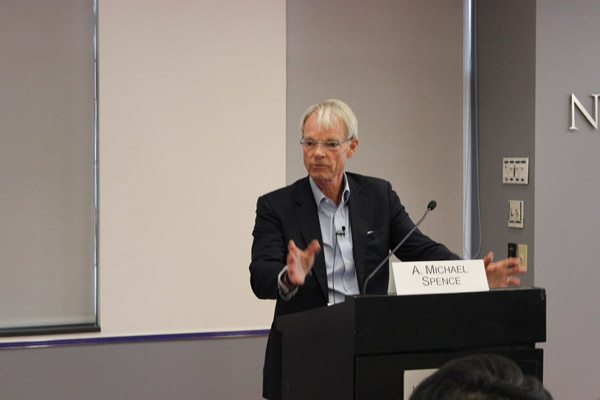 |
|
Michael Spence, a Nobel laureate and the William R. Berkley Professor in Economics and Business at New York University, told a conference in New York on April 17 that he expects China's GDP growth to average 6 to 7 percent annually. |
China's real estate market is so big that it can affect the global economy, and the country's regional and local government bond market play a major role in the national economy, said participants at a conference on China's property market.
Analysts in academia from across the globe reviewed that market on April 17 at New York University's Stern School of Business. It was sponsored by Stern's Center for Global Economy and Business and the Center for Real Estate Finance Research.
Based on size alone, China's real estate market can create ripples in not only its domestic economy, but the world as well, said Jennifer Carpenter, director of the Center for Global Economy and Business. An example of that size, she noted, is that the country has used more concrete in three and a half years than the United State has used in 100 years.
Carlos Garriega, a research officer at the Federal Reserve Bank of St. Louis, said China's urbanization program of moving millions of people from rural to the urban areas also has affected the country's property market. Garriega said in 1990 about 25 percent of the country's population lived in urban areas, and now it's up to 50 percent and growing. When you factor in that China has more than 1 billion people, the change is profound, he said.
As to whether there is a housing bubble happening or developing in China now, there may not be a clear cut answer, Garriega said: "A bubble is usually defined as a sustained pace of growth that is not supported by the fundamentals. Do we have that in China? Maybe and maybe not."
Assuming China hits its target of about 7 percent annual GDP growth, Joseph Gyourko of the University of Pennsylvania in Philadelphia, said the continuing movement from rural to urban areas should be enough to sustain growth in real estate.
In discussing risk in China's housing market, he dispelled what he said is a common misperception: "Most people think real estate prices only go up in China. That's not true. Prices went down during the financial crisis."
Since China does not levy property taxes, provincial and local governments use land sales to fund their operations. To help pay for infrastructure improvements, bonds issued by local-government financing vehicles (LGFVs) have exploded in popularity and also play a role in the nation's property market according to Jennie Bai, an assistant professor of finance at Georgetown University in Washington.
She said the market for Chengtou bonds (CTB) totaled about 4.95 trillion yuan ($800 billion) at the end of 2014.
CTBs are popular in China because they are "… guaranteed explicitly and implicitly by the central government," Bai said. She added that they are an integral element of China's so-called shadow banking system or non-traditional financing involving trusts, leasing companies and insurers.
The government guarantee is causing some consternation in China, said Bai. Though there hasn't been a default yet on the bonds, Bai said the government may have to make difficult decisions on who to bail out if things were to suddenly turn sour.
In his keynote address for the conference, A. Michael Spence, a Nobel laureate and the William R. Berkley Professor in Economics and Business at NYU, said China is attempting to manage expectations both internally and externally about its economy. He said household income as a percentage of GDP is now at about 50 percent and despite reports of rising wages, they have actually been trending down.
The savings rate is about 30 percent. "Ideally they would probably like to see household income at about 60 percent and savings at about 20 percent," Spence said. He expects China's GDP growth to average 6 to 7 percent annually.
paulwelitzkin@chinadailyusa.com
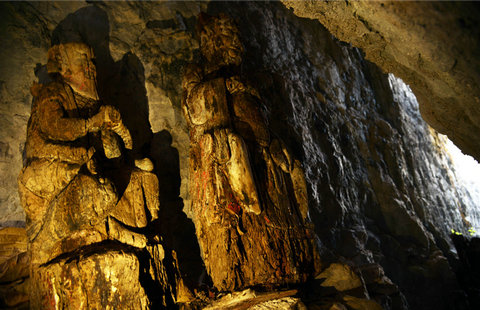
 Wood sculptures discovered inside cliffside cave in Chongqing
Wood sculptures discovered inside cliffside cave in Chongqing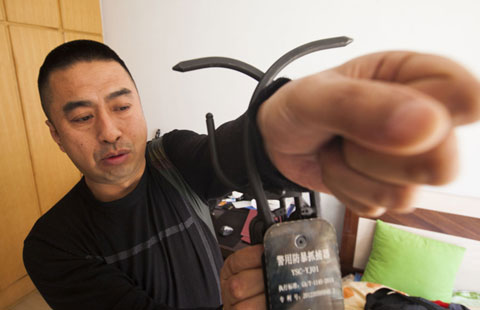
 Antiriot device earns national patent for Jilin farmer
Antiriot device earns national patent for Jilin farmer
 7 trends that will shape China's supply chain
7 trends that will shape China's supply chain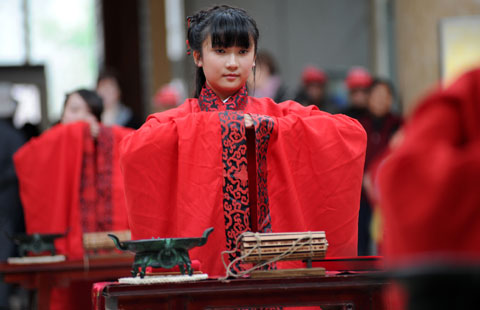
 Girls celebrate adulthood in NW China
Girls celebrate adulthood in NW China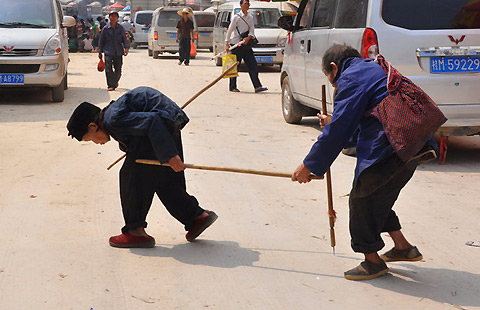
 Couple linked by a stick
Couple linked by a stick
 Natural History Museum opens in Shanghai
Natural History Museum opens in Shanghai
 Japanese WWII surrender video debuted at China museum
Japanese WWII surrender video debuted at China museum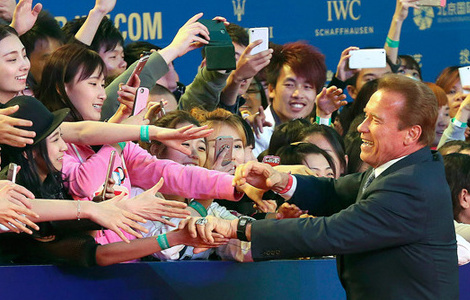
 Beijing film festival draws top moviemakers, Oscar winners
Beijing film festival draws top moviemakers, Oscar winners
Most Viewed
Editor's Picks

|

|

|

|

|

|
Today's Top News
AIIB looks to be efficient and 'green'
Bridging cultures with laughter
and song
Central bank cuts ratio for reserves
China's real estate market is a key global contributor: Conference
Envoy: Many benefits to Xi's visit
China concerned at reports of New Zealand-US plan to spy on diplomats
Old Summer Palace may sue over controversial replica
China and the 2016
US election
US Weekly

|

|






